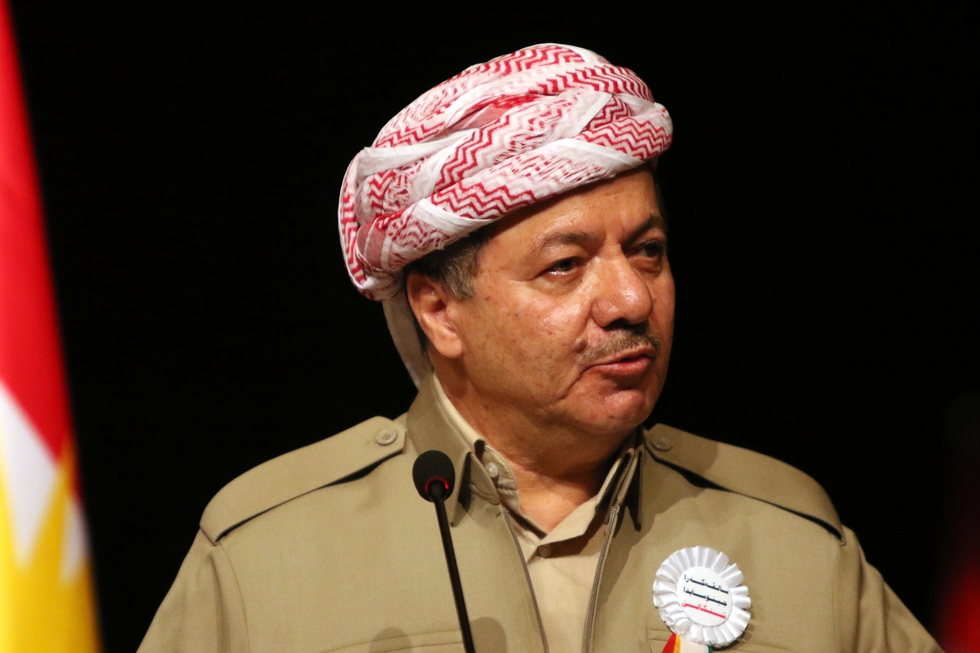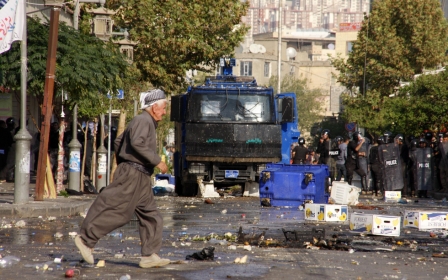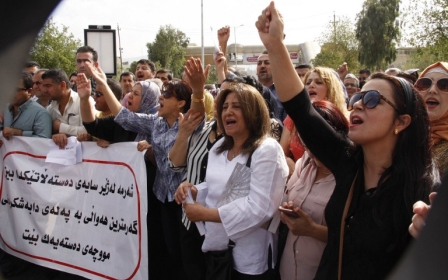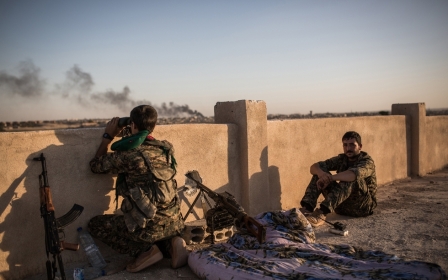Opposition slams 'political coup' in Iraqi Kurdistan

Several Iraqi Kurdish politicians were barred from reaching their offices on Monday, in what the opposition called a "political coup" by the autonomous region's president.
The crisis came after days of violent protests against acting president Massoud Barzani, whose mandate expired in August. His camp has accused the opposition Gorran party of inciting unrest.
Yusuf Mohammed, the speaker of the regional parliament and a Gorran party member, was stopped on the road to regional capital Erbil by security forces loyal to Barzani.
Barzani's Kurdistan Democratic Party (KDP) controls the west and north of the region while opposition parties, including Gorran, have most of their support base in the south.
"Everything that happened today and yesterday is a dangerous development for the political process in Kurdistan," Mohammed told reporters in Sulaimaniyah, the main city in the south.
Five Gorran MPs were with him when KDP security forces blocked them on the road to Erbil. They had been warned by KDP members on Sunday not to show up for work the next day.
"The forces that stopped us from entering Erbil would have been enough to liberate Shingal," he said, using the Kurdish name for the city of Sinjar, the main hub of Iraq's Yazidi minority which has been controlled by the Islamic State group since 2014.
Hoshyar Abdallah, a Gorran member of the federal Iraqi parliament in Baghdad, accused the KDP of being "irresponsible" and Barzani of clinging to power.
"It's like a coup against the rule of law and democracy," he told AFP. "It's an egregious political act... We urge Kurdish political parties to come together to solve this."
The Patriotic Union of Kurdistan (PUK), which fought a bitter civil war against the KDP in the 1990s, also condemned the measures against Gorran.
"What the KDP did is like a political coup, it is not acceptable," said PUK lawmaker Ala Talabani. "I hope there will be a peaceful solution."
Four people were killed in the past few days when what began as demonstrations demanding the salaries of civil servants be paid turned into violent protests against Barzani.
Several KDP offices in southern Kurdish towns were torched.
Spectre of past strife
Masrour Barzani, who is the regional government's intelligence chief as well as the president's son, accused Gorran of having a "deliberate plan... to incite hatred and violence".
Hemin Hawrami, a senior member of the KDP, said on social media Monday he considered Gorran to be "no longer in government".
Small protests were held Monday in Sulaimaniyah and in Halabja, mostly by teachers demanding their salaries.
The Sulaimaniyah governorate's spokesperson Honer Tawfiq said the regional government had begun paying teachers their July salaries on Monday.
"The main reason for this crisis is Massoud Barzani, who refuses to budge," said Hoshyar Abdallah.
The 69-year-old Barzani served two terms and a two-year extension Kurdish parties agreed to in 2013 which expired on 19 August. No deal was found for his succession.
Barzani wants to stay on, arguing his leadership is required to steer the region as its peshmerga forces play a significant role in battling the Islamic State group.
Asos Hardi, a Kurdish analyst, said the crisis revealed the weakness of the Kurdish political system.
"When the legal institutions are unable to solve such a crisis, the people on the street lose faith in their leaders' ability to steer the region," he said.
Yerevan Saeed, a Washington-based Kurdish affairs analyst, said the physical division resurfacing in Kurdistan was a dangerous development.
"The risk of civil strife is indeed there and it seems that Kurdish parties have not learned from the past," he said.
The KDP and PUK fought a bitter civil war in the mid-1990s and subsequently ran parallel administrations, dividing the region in two.
Middle East Eye propose une couverture et une analyse indépendantes et incomparables du Moyen-Orient, de l’Afrique du Nord et d’autres régions du monde. Pour en savoir plus sur la reprise de ce contenu et les frais qui s’appliquent, veuillez remplir ce formulaire [en anglais]. Pour en savoir plus sur MEE, cliquez ici [en anglais].




